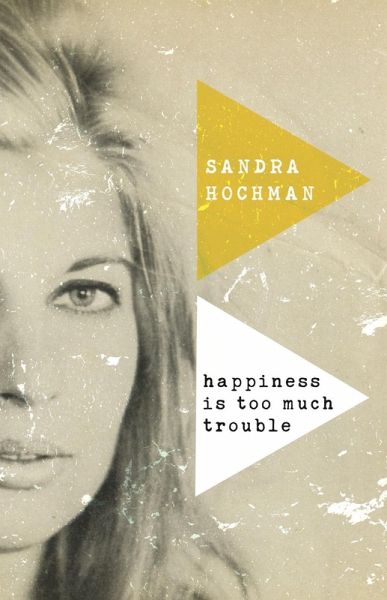
Happiness Is Too Much Trouble (eBook, ePUB)

PAYBACK Punkte
4 °P sammeln!
Turner Publishing is proud to present a new edition of Sandra Hochman's, Happiness Is Too Much TroubleFirst published by Putnam in 1976, Hochman's follow-up to Walking Papers is the story of a unique woman told by a unique voice in American literature.From the Putman edition: Who took over where Louis B. Mayer left off? A new kind of woman: Lulu. Lulu Cartwright is a troublemaker on a pilgrimage to save souls. One morning she wakes up and finds that she has been named head of the world's largest film studio. This powerful job is hers by a freak of computerized technology and ironic justice. As...
Turner Publishing is proud to present a new edition of Sandra Hochman's, Happiness Is Too Much Trouble
First published by Putnam in 1976, Hochman's follow-up to Walking Papers is the story of a unique woman told by a unique voice in American literature.
From the Putman edition: Who took over where Louis B. Mayer left off? A new kind of woman: Lulu. Lulu Cartwright is a troublemaker on a pilgrimage to save souls. One morning she wakes up and finds that she has been named head of the world's largest film studio. This powerful job is hers by a freak of computerized technology and ironic justice. As Lulu describes herself, she is the "unbroken token." She is also wise, frightened, funny, and sexually vulnerable.
Throughout the novel we follow Lulu from her moment of triumph back into her thoughts and memories. We meet her old lovers, husbands; we meet her parents, her childhood friends, her child; but most important of all, we meet Dumbo-a hustler and a stud. We watch Dumbo change from an out-of-work extra into Lulus "wife" and finally into an entrepreneur in the foot business. Through Lulu s eyes we put together the puzzle of her love for Dumbo. Dumbo is alive with contradictions, devotions, and a desire to heal soles. Dumbo, as perceived by Lulu, is the new hero, a stud-savior.
We also enter, with Lulu, through the computerized portals of the new Hollywood. We encounter the movieland of executives who never see films, the Hollywood of consultants, accountants, and frightened corporation men who have to deliver image and product in order to satisfy stockholders. On the way to the top, Lulu Cartwright finds herself in bed with Machiavellis, losers, and vibrators. Lulu is the kind of woman who manages to change the system, not merely be victimized by it.
Happiness Is Too Much Trouble is the story, past and present, of a woman who is finally, and against all odds, a winner. Lulu, by an accident of history, is forced to give up happiness and settle instead for fame, fortune, power. What makes her different is that she loves every minute of it. And so will you.
First published by Putnam in 1976, Hochman's follow-up to Walking Papers is the story of a unique woman told by a unique voice in American literature.
From the Putman edition: Who took over where Louis B. Mayer left off? A new kind of woman: Lulu. Lulu Cartwright is a troublemaker on a pilgrimage to save souls. One morning she wakes up and finds that she has been named head of the world's largest film studio. This powerful job is hers by a freak of computerized technology and ironic justice. As Lulu describes herself, she is the "unbroken token." She is also wise, frightened, funny, and sexually vulnerable.
Throughout the novel we follow Lulu from her moment of triumph back into her thoughts and memories. We meet her old lovers, husbands; we meet her parents, her childhood friends, her child; but most important of all, we meet Dumbo-a hustler and a stud. We watch Dumbo change from an out-of-work extra into Lulus "wife" and finally into an entrepreneur in the foot business. Through Lulu s eyes we put together the puzzle of her love for Dumbo. Dumbo is alive with contradictions, devotions, and a desire to heal soles. Dumbo, as perceived by Lulu, is the new hero, a stud-savior.
We also enter, with Lulu, through the computerized portals of the new Hollywood. We encounter the movieland of executives who never see films, the Hollywood of consultants, accountants, and frightened corporation men who have to deliver image and product in order to satisfy stockholders. On the way to the top, Lulu Cartwright finds herself in bed with Machiavellis, losers, and vibrators. Lulu is the kind of woman who manages to change the system, not merely be victimized by it.
Happiness Is Too Much Trouble is the story, past and present, of a woman who is finally, and against all odds, a winner. Lulu, by an accident of history, is forced to give up happiness and settle instead for fame, fortune, power. What makes her different is that she loves every minute of it. And so will you.
Dieser Download kann aus rechtlichen Gründen nur mit Rechnungsadresse in A, D ausgeliefert werden.













